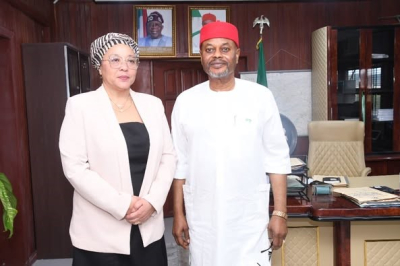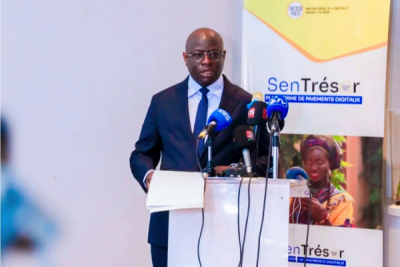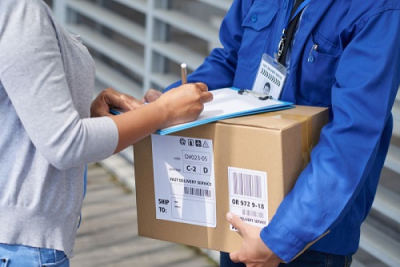Cameroon is facing significant financial losses due to the manual management of non-tax revenues, prompting the government to accelerate the digitalization of public payment systems. This push aims to enhance transparency and improve efficiency in revenue collection.
Cameroonian Prime Minister Joseph Dion Ngute (photo) has issued a three-month deadline for several government departments to exclusively use Trésor Pay, the digital platform for collecting non-tax revenues. The measure, outlined in an order signed on Wednesday, May 28, aims to bolster transparency, traceability, and the security of financial flows within public administration.
Developed by the Ministry of Finance, Trésor Pay enables citizens to make non-tax payments online via mobile money, bank cards, or Campost counters. It is progressively replacing manual procedures, which have frequently been sources of fraud, administrative delays, and financial losses for the Treasury. The platform also ensures receipt authentication and provides a real-time tracking system, facilitating monitoring and communication between the administration and users.
This decision comes amid a backdrop of poor performance in mobilizing non-tax revenues. For 2025, Cameroon is targeting collections of 361 billion CFA francs ($638 million), despite the actual potential being estimated at nearly 600 billion CFA francs. This shortfall is primarily attributed to fragmented payment channels, the prevalence of manual procedures prone to irregularities, a lack of transaction traceability, and insufficient coordination among relevant departments. These weaknesses undermine the system's efficiency and hinder optimal mobilization of non-tax resources.
The stakes are high for public finances. By making Trésor Pay mandatory, the government aims to improve governance, maximize domestic resources, and fully align with its digital transformation strategy. In the long run, this reform is expected to enhance the state's capacity to finance its public policies while simultaneously modernizing services for citizens.
By Samira Njoya,
Editing by Sèna D. B. de Sodji



















